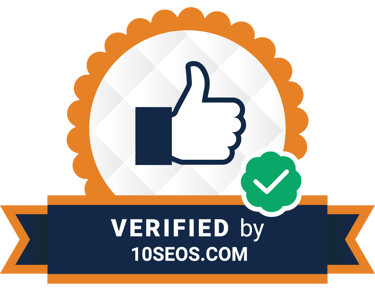What Is NLP and How It’s Revolutionizing SEO Strategies in 2025
Search engine optimization (SEO) is constantly evolving, and in 2025, natural language processing (NLP) has become a game-changer. As search engines like Google become smarter, understanding and implementing NLP techniques is critical for crafting content that ranks well and resonates with readers. In this blog, we’ll explore what NLP is, how it works, and how it’s revolutionizing SEO strategies in 2025.
Vinay Jain
1/3/20255 min read


What Is NLP?
Natural language processing (NLP) is a branch of artificial intelligence (AI) that enables computers to understand, interpret, and respond to human language. NLP helps machines analyze text and speech, considering grammar, context, tone, and meaning.
In the context of SEO, NLP enables search engines to better interpret the intent behind search queries and the content of web pages. This means that search engines are now focusing on context, semantics, and user satisfaction, rather than just keyword matching.
For businesses and agencies looking to stay ahead in this evolving landscape, leveraging specialized support like white-label SEO services can help implement advanced strategies seamlessly.
How Search Engines Use NLP in 2025
In 2025, NLP advancements allow search engines to use sophisticated techniques to interpret and rank content effectively. Let’s look at some of the key NLP techniques influencing SEO:
1. Entity Recognition and Linking
Search engines recognize specific entities such as brands, products, and locations to better understand content relevance. For example, when writing about "best smartphones," including entities like "Apple iPhone 15" or "Samsung Galaxy S23" boosts credibility and improves search rankings.
Example:
Non-NLP Writing: “The best smartphones have great cameras.”
NLP-Optimized Writing: “In 2025, smartphones like the Apple iPhone 15 and Samsung Galaxy S23 set the standard with their advanced camera technology.”
To learn more about NLP, check out this blog post: "How NLP Helps Search Engines Understand Content Better."
2. Keyword Clustering for Semantic Depth
NLP enables search engines to group related keywords, which means creating content with semantic depth is more critical than ever. By clustering keywords, writers can signal comprehensive coverage of a topic.
Example:
Shallow Keyword Usage: “Electric cars are popular and eco-friendly.”
NLP-Optimized Clustering: “Electric cars, such as Tesla Model 3 and Nissan Leaf, offer eco-friendly solutions with improved EV battery life and charging station networks.”
Want to dive deeper into Keyword Clustering? Our latest blog, What is Keyword Clustering & Semantic SEO, breaks it down in detail and helps you understand how to use it effectively.
3. Sentiment Analysis for Tone and Engagement
Search engines analyze the tone of content to ensure it matches user intent. Positive or neutral tones are often preferred, as they engage readers better and align with searcher expectations.
Example:
Neutral Tone: “Supplements might help some people.”
Optimized Positive Tone: “Supplements like omega-3 and vitamin D naturally support heart health and immunity.”
4. Topic Modeling for Breadth
Search engines prioritize content that demonstrates expertise by covering topics comprehensively. Writers can use NLP-powered topic modeling to identify and include relevant subtopics, showcasing authority.
Example:
Limited Coverage: “Smart home systems control lights and temperature.”
NLP-Optimized Coverage: “Smart home systems offer advanced control over lighting, temperature, and security. Features like energy-saving technology and voice-activated controls enhance convenience.”
How NLP Revolutionizes SEO Strategies
Incorporating NLP into your SEO strategy means shifting your focus from keyword stuffing to creating meaningful, user-focused content. Here’s how NLP is transforming SEO practices:
1. Creating Context-Rich Content
NLP emphasizes context over isolated keywords. This means crafting content that flows naturally and uses contextually relevant terms.
2. Targeting Search Intent
By understanding the user’s intent behind a query, NLP ensures that content directly addresses their needs, improving both engagement and rankings.
3. Enhancing Content Readability
Search engines now prioritize user experience, and NLP-optimized content is clear, engaging, and easy to read.
4. Leveraging Semantic Keywords
NLP enables the use of related keywords to provide depth and relevance, improving the chances of ranking for a wider range of queries.
How to Optimize SEO Content Using NLP in 2025
SEO is changing fast, and Natural Language Processing (NLP) is at the heart of it. Google’s algorithms are now smarter than ever, understanding content the way humans do. That means stuffing keywords won’t cut it anymore. Instead, you need to create content that’s rich, relevant, and structured in a way that search engines—and people—love.
So, how do you do that? Let’s dive into four powerful NLP techniques to optimize your SEO content in 2025.
1. Use Recognized Entities
Search engines prioritize content that includes well-known entities—brands, locations, people, or products—because they provide context and credibility. When you mention a recognized entity, Google understands your content better and may associate it with relevant search queries.
How to Implement:
Mention authoritative sources, such as industry leaders or official organizations.
Include well-known locations when discussing local SEO topics.
Reference popular products or brands where relevant to boost contextual relevance.
For example, instead of saying “There are many SEO tools available,” you could say, “SEO tools like Ahrefs, SEMrush, and Google Search Console provide deep insights into rankings.” This signals to search engines that you’re providing authoritative, useful information.
2. Cluster Related Keywords
Forget about single-keyword optimization. Google now understands topics, not just keywords. That means your content should include semantically related terms and phrases instead of just repeating one keyword over and over.
How to Implement:
Use tools like Google’s NLP API, SurferSEO, or Clearscope to find related terms.
Group keywords naturally within headings, subheadings, and body content.
Answer multiple related questions within a single piece of content.
For example, if your main keyword is “content marketing strategy,” you should also include terms like “content distribution,” “audience targeting,” and “engagement metrics.” This tells Google that your content is comprehensive and relevant to the topic as a whole.
3. Analyze Sentiment
Google prioritizes content that provides a good user experience. One way it determines this is by analyzing sentiment. Content that has a positive or neutral tone tends to perform better because it engages readers and reduces bounce rates.
How to Implement:
Use sentiment analysis tools like MonkeyLearn or Google Cloud NLP to assess your content.
Maintain an informative yet friendly tone—avoid excessive negativity.
Encourage positivity by providing solutions rather than just pointing out problems.
For example, instead of saying “SEO is difficult and time-consuming,” you could say, “SEO takes effort, but with the right strategy, it can drive amazing results.” See the difference? One sounds discouraging, while the other is optimistic and actionable.
4. Cover Topics Broadly
Google rewards content that provides deep, comprehensive coverage of a topic. If your content only scratches the surface, it won’t rank as well. Covering a topic broadly means addressing all key aspects and answering potential questions users may have.
How to Implement:
Use Google’s “People Also Ask” and related searches to find subtopics.
Structure your content with clear headings, bullet points, and examples.
Link to relevant internal and external resources to add depth.
For example, if you’re writing about “local SEO,” don’t just define it. Cover local citations, Google Business Profile optimization, review management, and geo-targeted keywords. The more in-depth your content, the more authoritative it appears to search engines.
Conclusion
NLP is revolutionizing SEO in 2025 by shifting the focus from keyword density to context, intent, and user experience. By mastering NLP techniques like entity recognition, keyword clustering, and sentiment analysis, you can create content that ranks higher, engages readers, and stays ahead of search engine algorithms.
Adopting NLP in your SEO strategy isn’t just a trend—it’s the future. Start optimizing your content today to stay competitive in the evolving world of search engine optimization.
If you're ready to elevate your SEO strategies in 2025 and want expert guidance, contact us today to learn how we can help you achieve your goals.
Skyline Digital Lab
Empowering businesses with impactful digital solutions.
White Label Services
+91-8871333442
© 2025 All rights reserved.
PPC
Social Media Marketing
Web Design & Development
Address
Jabalpur, M.P. India.







